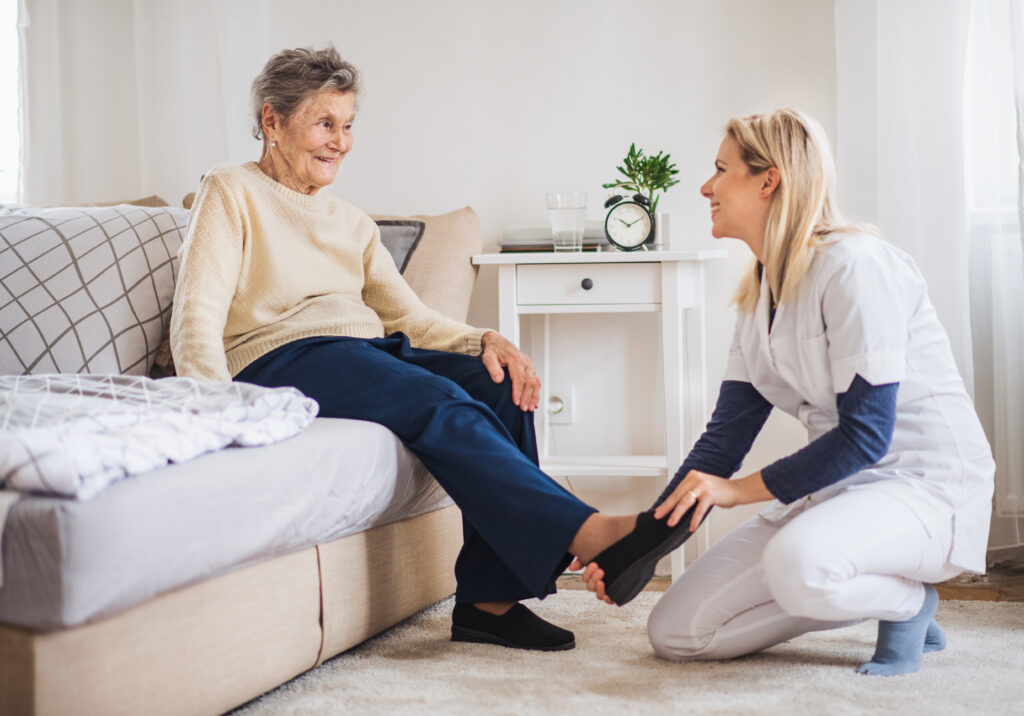
What It Takes To Be A Good Home Caregiver
November 30, 2020
Hospice Volunteer Program
December 4, 2020Making The Most of In-Home Caregivers
How home care can help you
The need for help often comes suddenly. It occurs when people are the least prepared. In-home caregivers help people live on their own terms. They help patients manage daily tasks when and how they want them done.
But home care providers are more than just an extra pair of hands around the house. They help create a path towards greater dignity and happiness for the seniors they serve. Carers provide a wealth of support that preserves seniors independence and overall emotional wellbeing.

Better living with in-home caregivers
In-home caregivers provide multiple services to help people with challenges that come with age, including some activities that may come as a surprise.
Help around the house
Keeping one’s home clean and orderly can become difficult as a person ages. An in-home caregiver helps with chores around the house, either working alongside their patients or alone, ensuring everything is in its right place.
Oftentimes, just putting things in their proper places is a big help for seniors. As people age, it becomes easy to lose track of where things are. In-home caregivers become familiar with how patients like things arranged. Personal knowledge of a patient’s home helps ensure that caregivers clean and restock properly, with needed items within easy reach in every room.
Meal planning and transportation
Caregivers provide extensive assistance with meal planning, from helping with grocery shopping to cooking healthy, nutritious meals. Patients often participate in the process, picking out what they want alongside their caregivers at the market, and even helping with the cooking process. This helps patients eat well, but also keeps them feeling engaged in their everyday lives.
In-home caregivers can also schedule transportation whenever patients need it, whether it’s for a doctor’s appointment, a family gathering, or just a change of scenery. Parentis Health’s Home Care and Transportation services help ensure that patients with wheelchairs and walkers can access specialized vehicles with ease.
Personal care and medication management
As people age, it becomes harder to carry out basic hygiene functions, such as bathing, brushing, or using the bathroom. When these become difficult, in-home caregivers will respectfully assist patients with hygiene and grooming, giving them whatever support they need.
Professional caregivers help seniors take their medications as required. Caregivers often assist patients with prescription refills and pick up medicine as needed, sorting and measuring out proper dosages. They also keep track of the patient’s medication schedule, to make sure it is taken at the right time.
Caregivers also help patients with mobility and posture. Patients who struggle with stiff joints can trust their home care providers to help them move smoothly from one position to the next, whether it’s getting out of bed or up out of an easy chair. This not only helps patients immediately, but it also helps train the body. This gets the body used to activity and exercise. More activity and exercise mean more independence, which makes an in-home caregiver more than just a helping hand—they’re a new lease on life!
Keeping seniors safe online
In today’s permanently wired world, navigating the web has become second nature for most. But for seniors, it can be a very overwhelming, confusing, and even dangerous place.
Many seniors no longer feel safe visiting stores, but don’t feel comfortable using digital applications, from huge online retailers to local food delivery services. In-home caregivers help patients utilize the internet to buy necessities or stay connected with their loved ones online. Savvy caregivers also safeguard sensitive information, helping ensure that seniors can surf the web without worry.

